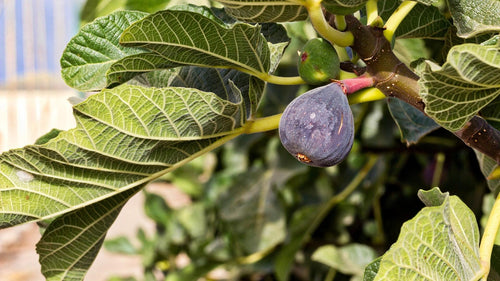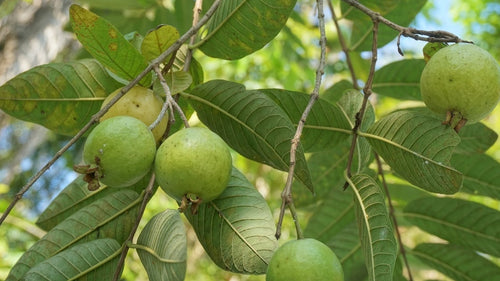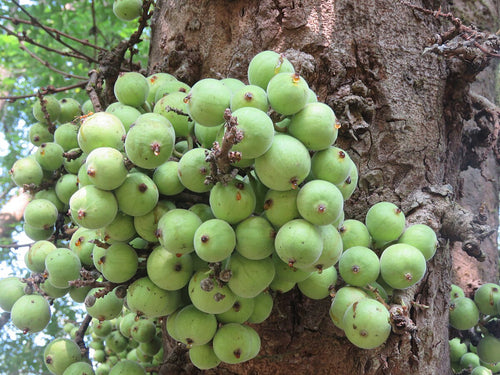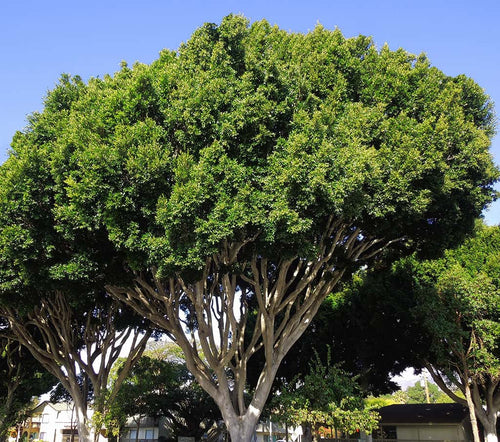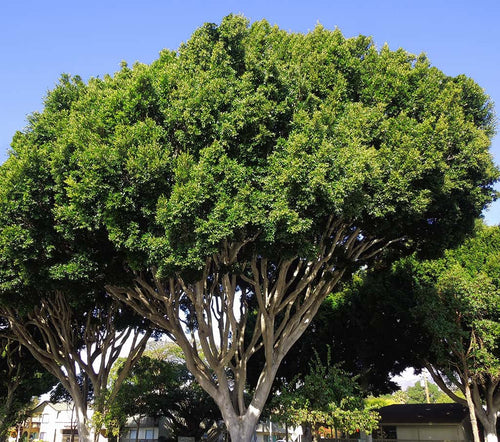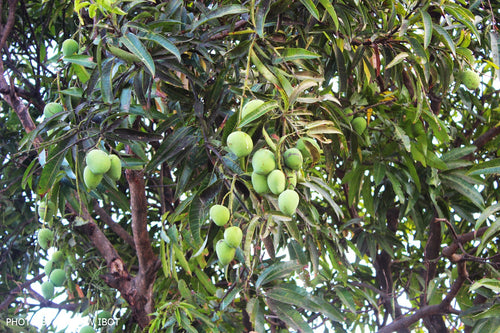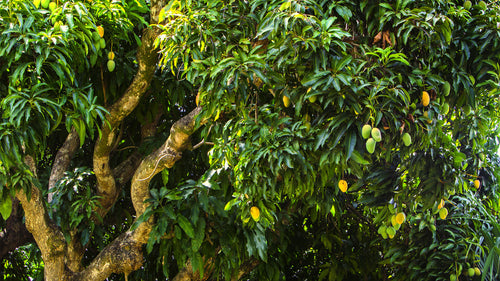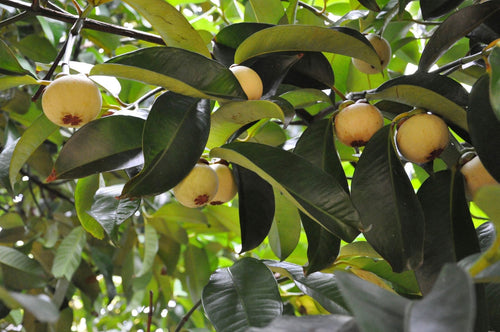Reforesting with Purpose: We4All’s Tree Plantation for Climate & Livelihood
We4All, a dedicated environmental non-profit organization, is driving sustainability through its agroforestry-based tree plantation initiative. This e Read more
Plantation Site Gallery
Project Update 3
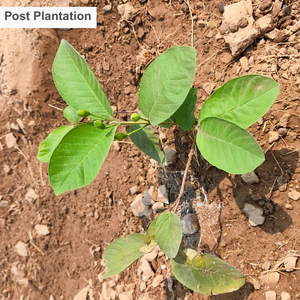
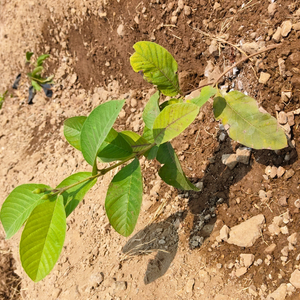
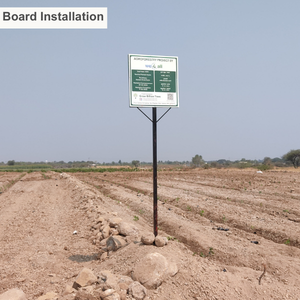
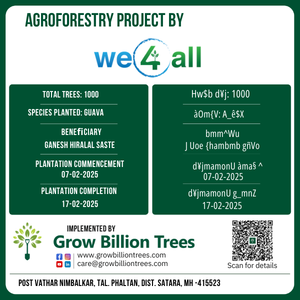
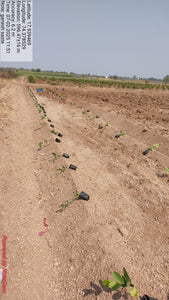
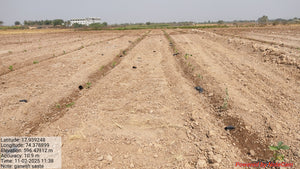
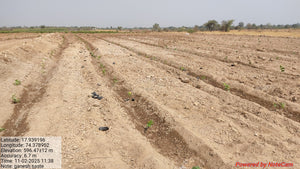
Project Update 2
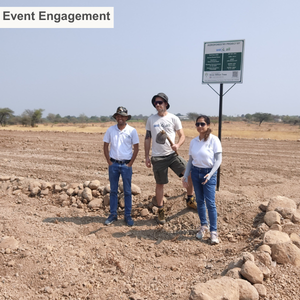
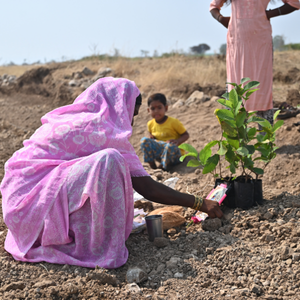
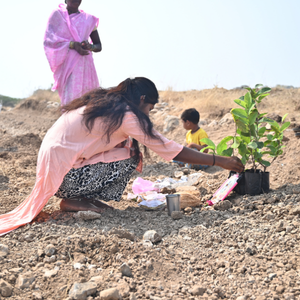
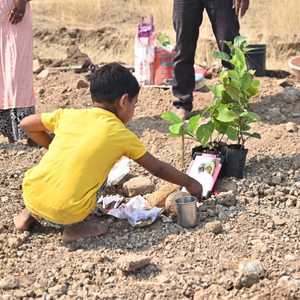
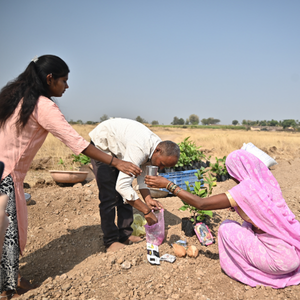
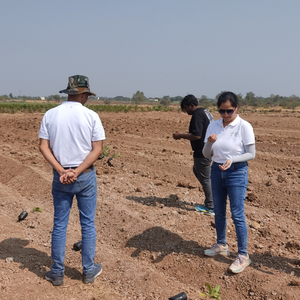
Project Update 1
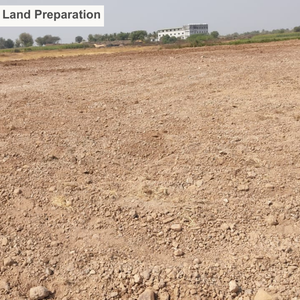
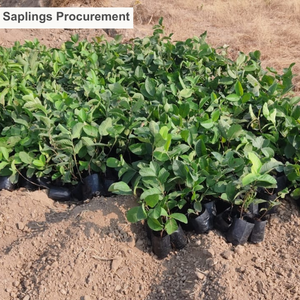
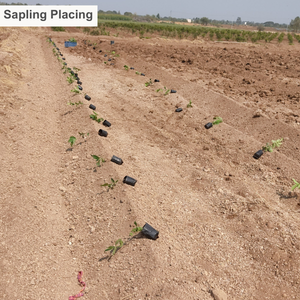
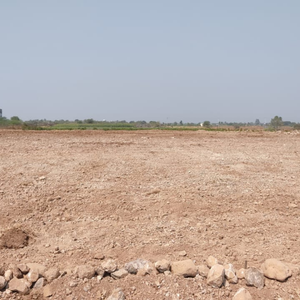
Digital Forest
Forest with 1,000 Trees planned
Want to plant your tree now?
Plant a Tree @ 299Reforesting with Purpose: We4All’s Tree Plantation for Climate & Livelihood
We4All, a dedicated environmental non-profit organization, is driving sustainability through its agroforestry-based tree plantation initiative. This effort aligns with We4All’s mission of fostering a greener planet by integrating tree planting with sustainable land use. By planting trees in agroforests, We4All contributes to reforestation, enhances biodiversity, prevents soil erosion, and supports local ecosystems.
Agroforestry a practice that combines trees with agriculture, ensures long-term ecological and socio-economic benefits. By integrating trees into farming systems, this initiative helps sequester carbon, improve air quality, and restore degraded landscapes. Additionally, it enhances farmers’ livelihoods by increasing income opportunities, reducing farming costs, and improving soil fertility, leading to better crop yields. The initiative also strengthens climate resilience, providing sustainable solutions that support the environment and local communities.
Every tree planted is a step towards environmental restoration and climate action, embodying We4All’s vision of a healthier, more sustainable world.
Project Planning & Execution
No of Trees: 1000
Plantation Location: Girvi, Phaltan, District Satara 415523
Plantation Duration: 7th February - 17th February 2025
Name of Species: Guava, Mango, Fig
Species Selection & Its Benefits:
The initiative prioritizes the planting of native tree species, ensuring high survival rates and fostering long-term ecological stability. By aligning tree selection with the farmer’s needs and local market demand, the project enhances environmental sustainability while providing a long-term source of income. The farmer's consent and active participation played a crucial role in selecting the tree species, ensuring seamless integration with existing agricultural practices.
For this initiative, a single farmer was supported with the plantation of 1,000 fruit trees, comprising Guava (Psidium guajava), Mango (Mangifera indica), and Fig (Ficus carica). Guava was chosen for its drought tolerance and early fruiting, offering quick and reliable income. Mango was selected for its strong market demand and long-term profitability. Fig was included for its low maintenance needs and adaptability to semi-arid conditions. This thoughtful selection not only strengthens the farmer’s livelihood but also aligns with We4all’s broader commitment to environmental conservation and rural empowerment.
Beneficiaries Details
| SN | Farmer Name | Google Location | Village Name | Plot Size | Guava Planted | Mango Planted | Fig Planted |
| 1 | Ganesh Hiralal Saste | https://tinyurl.com/mwr9kptf | Girvi | 1.25 Acre | 980 | 10 | 10 |
This initiative has empowered Mr. Ganesh Hiralal Saste to adopt agroforestry, allowing them to benefit from a diversified income source, improved soil fertility, enhanced water retention, and reduced erosion. He received technical training in tree plantation, soil management, and sustainable farming techniques, with ongoing support through expert monitoring. This initiative not only strengthens environmental sustainability but also enhances the farmer’s economic stability, fostering a resilient farming model and contributing to the long-term well-being of Girvi, Maharashtra.
Planting Methodology and Its Advantages
Agroforestry:
We4All’s tree plantation initiative is rooted in the agroforestry concept, a sustainable land management practice that not only benefits the environment but also provides additional income for farmers. By integrating trees with agricultural landscapes, farmers can generate revenue through fruit production, reduce dependency on chemical inputs, and diversify their income streams, ensuring financial resilience for rural communities. Agroforestry enhances soil fertility, improves water retention, and prevents erosion, contributing to long-term ecological stability. It supports biodiversity, promotes natural pest control, and creates favorable microclimates that enhance agricultural productivity by regulating temperature, reducing wind impact, and providing shade.
As part of its global environmental mission, We4all recognizes agroforestry as a powerful strategy for carbon sequestration, ecological restoration, and sustainable land management. This approach reflects the organization’s deep-rooted commitment to healing the planet, promoting climate resilience, and empowering communities through nature-based solutions. By integrating tree plantations with agricultural landscapes, We4all actively supports a greener, healthier Earth for current and future generations.
Advantages of Agroforestry
-
Increased Farmer Incomes: This approach helps in increasing the farmer’s income by as much as 3 times. Farmers benefit from diversified income sources, lifting economic resilience.
-
Improved Livelihoods: Agroforestry enhances farmers' resilience to economic and climate-related shocks by creating more sustainable and diversified farming systems.
-
Biodiversity Promotion: Agroforestry supports a diverse range of plants and animals, creating habitats for wildlife and improving ecosystem health.
-
Environmental Sustainability: This model reduces carbon emissions and promotes sustainable land management, aligning with SDG 13 (Climate Action) and SDG 15 (Life on Land).
-
Food Security: Agroforestry enhances agricultural productivity and food availability by integrating fruit-bearing trees with crops, contributing to SDG 2 (Zero Hunger).
-
Carbon Sequestration: Trees planted through agroforestry absorb carbon dioxide, helping reduce greenhouse gas emissions.
-
Climate Resilience: Agroforestry helps mitigate climate change impacts by improving land productivity and fostering biodiversity.
- Improved Soil and Water Management: Trees enhance soil fertility, reduce erosion, and increase water retention, resulting in more resilient farming.
Activities During Tree Plantation
During We4All’s tree plantation initiative, carried out under the agroforestry concept, all plantation tasks were carefully executed by skilled hands, ensuring sustainable and effective planting practices. The initiative was thoughtfully designed to align with environmental conservation goals and create a lasting positive impact.
The tree plantation drive under We4All’s Agroforestry Initiative saw the dedicated participation of the local community. Mr. John from We4All actively took part in the plantation alongside Ms. Nidhi Singh, Co-founder and CEO of Grow Billion Trees; Mr. Satender Kumar, Co-founder and CIO of Grow Billion Trees; and Mr. Ganesh Hiralal Saste, the local farmer. Together, they planted saplings of guava, mango, and fig, symbolizing a united commitment to sustainability and ecological restoration. Before the plantation, the land was cleared of excess vegetation, pits were dug to enhance water retention, and the soil was enriched with organic compost.
The event began with a prayer ritual, invoking blessings for the healthy growth of the trees and the success of the initiative. This collaborative activity not only strengthened partnerships and showcased a hands-on approach to conservation but also served as an inspiration for the local farming community. Through such grassroots actions, We4All continues to drive forward its mission of healing the planet and building climate-resilient rural ecosystems.
Conclusion Elements
Impact
Direct Impact
| Parameters | Values | References |
| No. of Trees Planted | 1,000 | |
| Green Cover (Acres) | 1.25 | |
| Fruit Production Potential (Tons/Year) | 34.75 | |
| Income Generation Potential (Rs/Year) | ₹686,000 | |
| Carbon Sequestration Potential (KG) | 20 |
Small to medium-sized trees can sequester around 10–48 kilograms (22–106 pounds) of CO₂ annually. https://onetreeplanted.org/blogs/stories/how-much-co2-does-tree-absorb |
| Carbon Sequestration by 1000 mature trees ( Tons/year) | 20 Ton | No. of Trees x Carbon Sequestration by 1 mature trees per year |
| Carbon Credit Equivalent | 20 | One carbon credit is equivalent to one tonne of carbon dioxide or the equivalent amount of another greenhouse gas. |
| Carbon Footprint of an avg Indian Citizen (Tons/Year) | 1.8 | https://www.iea.org/countries/india/emissions |
| Offsets Annual Carbon Footprint of (Adults) | 11 | Carbon offset by 1000 mature trees per year / Carbon Footprint of an avg Indian Citizen per year |
Indirect Impact
Community Impact
-
Empowerment of Farmers: By providing training and resources for sustainable farming practices, agroforestry equips farmers with skills to enhance productivity and adapt to environmental changes.
-
Food Security: The integration of fruit-bearing trees and crops ensures a consistent food supply, improving nutrition and reducing hunger within the community.
-
Environmental Awareness: Community involvement in tree plantation fosters a sense of responsibility for environmental conservation and promotes sustainable practices in daily life.
-
Enhanced Social Equity: Agroforestry initiatives foster enhanced social equity by empowering marginalized farmers with sustainable livelihoods, bridging economic gaps, and promoting inclusive community participation in environmental conservation efforts.
-
Resilience to Climate Change: The diverse and sustainable nature of agroforestry helps communities mitigate the impacts of climate change, including extreme weather events, by stabilizing local ecosystems.
-
Health and Well-being: Green spaces created through agroforestry improve air quality and offer a healthier environment, contributing to the physical and mental well-being of the community
Environmental Impact
-
Carbon Sequestration: Trees act as carbon sinks, absorbing significant amounts of CO2 from the atmosphere, helping to mitigate climate change and reduce greenhouse gas emissions.
-
Soil Health Improvement: Agroforestry enriches soil through organic matter from fallen leaves and roots, improving fertility, structure, and nutrient availability for crops.
-
Erosion Prevention: Tree roots stabilize the soil, reducing erosion caused by wind and water while protecting nearby agricultural fields and water bodies.
-
Biodiversity Conservation: By creating habitats for various species, agroforestry enhances biodiversity, supporting pollinators, beneficial insects, and native wildlife.
-
Water Cycle Regulation: Trees improve water retention, recharge groundwater levels, and reduce surface runoff, contributing to a more balanced and sustainable water cycle.
- Microclimate Regulation: Agroforestry moderates temperature extremes, reduces wind speeds, and increases humidity, creating favorable conditions for crop growth and ecosystem balance.
Achievements
SDG Goals Achieved through Agroforestry
-
SDG 1: No Poverty – By integrating fruit-bearing trees into farmland, this initiative creates a sustainable income source for farmers, strengthening financial security and reducing poverty in rural areas.
-
SDG 2: Zero Hunger – The agroforestry approach improves soil health, enhances agricultural productivity, and promotes sustainable farming, ensuring long-term food security for farming communities.
-
SDG 3: Good Health and Well-Being – Tree plantations help purify the air, enhance biodiversity, and contribute to a healthier ecosystem. By reducing carbon emissions and pollutants, this initiative supports respiratory health and overall well-being.
-
SDG 4: Quality Education – We4All supports knowledge-sharing on sustainable land management, empowering farmers with training on agroforestry techniques, conservation, and ecological restoration.
-
SDG 6: Clean Water and Sanitation – Agroforestry enhances groundwater recharge, prevents soil erosion, and reduces water runoff, contributing to better water conservation and ensuring long-term water availability.
-
SDG 8: Decent Work and Economic Growth – The initiative fosters employment opportunities in tree planting, farm management, and agro-processing, encouraging sustainable livelihoods and economic growth.
-
SDG 9: Industry, Innovation, and Infrastructure – We4All promotes sustainable agricultural infrastructure by integrating innovative farming practices, enhancing productivity while reducing environmental impact.
-
SDG 10: Reduced Inequality – By supporting marginalized farmer families, this project promotes income diversification and economic inclusion, reducing disparities in rural communities.
-
SDG 12: Responsible Consumption and Production – Sustainable agroforestry minimizes reliance on chemical inputs, promotes eco-friendly agricultural practices, and ensures responsible resource management.
-
SDG 13: Climate Action – Trees act as natural carbon sinks, mitigating climate change by absorbing CO₂, improving soil resilience, and reducing the impact of extreme weather conditions.
-
SDG 15: Life on Land – This initiative enhances biodiversity, prevents deforestation, restores degraded land, and strengthens ecosystem health through sustainable afforestation efforts.
-
SDG 17: Partnerships for the Goals – We4All collaboration with Grow Billion Trees highlights the significance of partnerships in driving impactful environmental and social change. Through collective expertise and community engagement, this initiative contributes to long-term sustainability and ecological restoration.
ESG Achieved through Agroforestry:
-
Environmental Impact: The We4All agroforestry initiative promotes sustainable afforestation, enhancing carbon sequestration, combating climate change, and improving air quality. By restoring soil fertility, preventing erosion, and supporting groundwater recharge, this initiative contributes to long-term ecological stability. Additionally, it fosters biodiversity by creating a thriving habitat for wildlife, reinforcing the company’s commitment to environmental conservation and responsible land management.
-
Social Impact: This initiative uplifts rural communities by generating income opportunities through farmer-led plantation activities. Integrating fruit-bearing trees into farmland enhances food security while promoting sustainable agricultural practices. We4All's commitment to gender equality is evident through the active participation of women in all phases of the project, from planting to harvest. Through its Corporate Social Responsibility (CSR) efforts, We4All actively fosters environmental awareness, community engagement, and long-term socio-economic benefits for farming communities.
- Governance Impact: The We4All collaboration with Grow Billion Trees ensures ethical governance, transparency, and measurable impact. The initiative adheres to sustainable afforestation standards, with expert-led implementation and strategic execution. By embedding accountability and responsible corporate governance into its environmental efforts, the company reinforces stakeholder trust and sets a benchmark for sustainability-driven corporate leadership.
Building Communities
One of the most profound outcomes of the We4All agroforestry initiative was the sense of unity and collaboration it nurtured within the local community. By actively involving farmers, stakeholders, and environmental partners, the initiative transformed from a simple tree plantation drive into a shared mission for a greener, more sustainable future.
-
Empowering Farmers: The Farmer was not just a beneficiary but an active participant, gaining hands-on experience in sustainable agroforestry techniques. By integrating these practices into their traditional farming methods, he strengthened his economic stability and environmental resilience, ensuring long-term benefits for his livelihood and the ecosystem.
-
Fostering Partnerships: The project encourages active participation from Mr. Ganesh Hiralal Saste throughout the plantation process, fostering a sense of ownership and collaboration in the community. We4All’s collaboration with Grow Billion Trees and local farming communities demonstrated the power of collective action in driving meaningful environmental change. This synergy ensured expert-led execution, long-term sustainability, and tangible positive outcomes for both people and nature.
-
Creating a Ripple Effect: As farmers witnessed the economic and ecological benefits of agroforestry firsthand, their enthusiasm encouraged neighboring communities to adopt similar sustainable practices. This cascading effect expanded the initiative’s impact, turning a single project into a widespread movement for resilient and greener landscapes.
This initiative reaffirmed that true environmental sustainability is rooted in community-driven efforts. It was not just about planting trees; it was about planting hope, fostering collaboration, and building a shared vision for a healthier planet.
Commitment by Grow Billion Trees
Grow Billion Trees is committed to driving sustainable plantation efforts, ensuring every initiative aligns with key environmental objectives and promotes long-term ecological balance. We focus on selecting native tree species that are well-adapted to local ecosystems, ensuring a higher survival rate and stronger environmental impact.
To maintain plant health and longevity, Grow Billion Trees emphasizes continuous maintenance and regular monitoring of the plantations. This approach helps ensure that each tree thrives, contributing effectively to both biodiversity and climate resilience.
Transparency is a core principle in our operations. Clients receive comprehensive reports, including geo-tagging of planted trees, survival rate updates, and ongoing progress reports. This level of openness allows clients to track the direct impact of their contributions, reinforcing trust and accountability.
Through our dedication to sustainable practices, Grow Billion Trees ensures that every plantation project leaves a lasting positive footprint on both the environment and the local communities it serves.
Acknowledgment
We at Grow Billion Trees extend our heartfelt gratitude to everyone who contributed to the success of the agroforestry plantation initiative in Girvi, District Satara, Maharashtra, in collaboration with We4All. This project, which harmonizes environmental sustainability with community empowerment, would not have been possible without the dedication and collective efforts of key individuals.
To We4All: We sincerely appreciate your commitment to sustainability and social responsibility. Your initiative to plant 1000 guava, mango, and fig trees has not only contributed to environmental restoration but also laid the foundation for long-term benefits for the local farming community. Your dedication to fostering a greener future is truly commendable, and we are honored to partner with you in this meaningful endeavor.
To Mr. Ganesh Hiralal Saste: Your willingness to embrace agroforestry and integrate fruit-bearing trees into your farming practices has been truly commendable. This initiative not only enhances soil health but also contributes to long-term agricultural sustainability. Your commitment to improving the ecosystem while securing a better future for coming generations is inspiring. We are honored to be part of this journey and look forward to the continued positive impact of your efforts.
To Our Ground Partners and Volunteers: Your unwavering support and commitment to environmental conservation have played a crucial role in making this project a success. Through collaboration and shared vision, we have taken a step toward a more sustainable and resilient future. Your contributions are deeply valued, and we thank you for being an essential part of this journey.
This initiative is just the beginning of our collective efforts to promote agroforestry and empower rural communities. Together, we will continue working toward a greener, more sustainable future for all.
Thank you for your unwavering commitment and support.
Closing Remarks
The successful completion of the agroforestry plantation at Girvi, District Satara, Maharashtra, marks a meaningful step toward environmental sustainability and community empowerment. This initiative has not only contributed to the region’s green cover but has also provided long-term benefits for the farmers by integrating sustainable agricultural practices. By enhancing soil fertility and offering an additional source of income through fruit production, the initiative strengthens economic stability, ensuring lasting benefits for the farming community. It stands as a testament to how collective efforts can create a positive impact on both livelihoods and nature.
With 1000 guava, mango, and fig trees now thriving, this project will contribute to ecological restoration, biodiversity enhancement, and long-term financial support for the farmer. As we celebrate this achievement, we remain committed to promoting sustainable initiatives and encouraging more organizations to participate in similar impactful programs.
We extend our sincere appreciation to We4All, Mr. Ganesh Hiralal Saste of Girvi, our partners, and all those who contributed to its commitment to sustainability by planting these trees as its global mission of healing the planet. Our gratitude also goes to the farmer, our partners, and everyone involved in making this vision a reality. Your dedication and contributions have been instrumental in ensuring the success of this initiative.
This is just the beginning of a broader movement towards a greener and more sustainable future. By continuing to collaborate, we can build a resilient environment and create a lasting legacy for the future.
Trees for Corporates
Trending
Most Popular
1. Agroforestry Benefits
Agroforestry, a smart fusion of trees and farming, is the MVP of sustainable agriculture. We4All’s agroforest initiative reaps massive benefits, helping farmers diversify their income, reduce farming costs, and improve soil quality. By planting trees alongside crops, farmers can produce more while using fewer chemicals. Trees act as natural fertilizers, enriching the soil and reducing the need for synthetic alternatives. Plus, the additional fruits, nuts, and timber provide a nice financial cushion. But that’s not all – trees prevent soil erosion, boost water retention, and enhance biodiversity. This win-win scenario is not just good for the farmers; it's great for the environment too, as the trees help mitigate climate change by absorbing CO2. Thanks to We4All’s efforts, agroforestry is no longer just a good idea – it’s a reality that’s turning barren lands into green, productive havens!
2. Carbon Sequestration with Trees
Ah, the age-old problem of carbon emissions. Enter trees – nature’s ultimate carbon vacuums. We4All’s tree plantation initiative in agroforests isn’t just about making the world look prettier; it’s about pulling CO2 out of the atmosphere, one leaf at a time. With every tree planted, carbon is stored in their roots and trunks, reducing the impact of climate change. Trees act like little green machines, soaking up carbon dioxide during photosynthesis and releasing oxygen. This natural process helps lower the carbon footprint while contributing to cleaner air. So, by planting trees, We4All’s agroforestry project is playing a crucial role in reducing the amount of greenhouse gases floating around, making our planet healthier, one tree at a time.
3. Biodiversity Conservation through Agroforestry
Biodiversity – the more, the merrier! We4All’s agroforest initiative doesn’t just focus on crops; it’s about creating a vibrant, thriving ecosystem. Planting trees in agricultural areas enhances biodiversity by providing shelter and food for various species, from birds and insects to mammals and microorganisms. The agroforestry approach mimics nature by combining trees and crops, creating a habitat that nurtures not only plants but also wildlife. This eco-friendly approach helps maintain balance in the environment and ensures that species thrive. So, whether it’s bees buzzing around or birds chirping above, We4All’s efforts are helping preserve the intricate web of life that’s essential to a healthy planet.
4. Sustainable Farming Practices
Who knew farming could be both profitable and environmentally responsible? We4All’s agroforest initiative is the perfect example of sustainable farming practices in action. By planting trees alongside crops, the practice enhances soil fertility, reduces the need for harmful pesticides, and conserves water. Sustainable farming methods like this benefit farmers in the long run by maintaining soil health and ensuring that their land remains productive for generations to come. Plus, with trees acting as natural windbreaks, crops are protected from extreme weather, giving farmers a more reliable and cost-effective way to grow food. It's all about long-term gains, with a side of environmental goodness!
5. Soil Erosion Prevention
Soil erosion, the sneaky villain of agriculture, doesn’t stand a chance against We4All’s agroforestry techniques. Trees’ deep, spreading roots anchor the soil, preventing it from washing away during heavy rains. By planting trees alongside crops, farmers create a natural defense against erosion while improving soil structure. The result? Healthier soil that holds onto moisture and nutrients better, leading to improved crop yields. Soil erosion isn’t just a nuisance for farmers; it’s a global issue, and We4All’s agroforest initiative is tackling it head-on by providing farmers with the tools they need to protect their land and keep it productive for the long haul.
6. Income Diversification for Farmers
When life gives you trees, you don’t just grow crops – you grow income. We4All’s agroforestry project helps farmers diversify their income streams by introducing a variety of tree products, such as fruits, timber, and medicinal plants. Instead of relying on one crop, farmers now have multiple sources of income that can buffer them against market fluctuations and climate risks. Whether it’s a bumper harvest of oranges or the sale of sustainable timber, agroforestry offers farmers financial stability in unpredictable times. It's the ultimate safety net, providing a cushion that helps farmers thrive without putting all their eggs (or crops) in one basket!
7. Agroforestry and Climate Change Mitigation
In the battle against climate change, We4All’s agroforestry initiative is like a superhero with a green cape. By planting trees, the project helps absorb carbon dioxide from the atmosphere, reducing the greenhouse gases that contribute to global warming. But that’s not all – agroforestry also helps increase the resilience of agricultural landscapes to climate extremes like droughts and floods. The trees protect crops, enhance water retention in the soil, and create cooler microclimates. So, while the world grapples with climate change, We4All’s agroforestry project is playing a crucial role in both mitigating its effects and adapting to the challenges it brings.
8. Sustainable Land Use with We4All
When it comes to land, We4All is all about making the most of it – sustainably. Through agroforestry, the initiative ensures that land is used in a way that’s both productive and environmentally friendly. By combining trees with crops, We4All creates a system where land is used more efficiently, reducing deforestation and preserving natural ecosystems. This smart land use strategy helps prevent soil degradation, reduces the need for chemical inputs, and enhances biodiversity. Whether it's maximizing food production or boosting soil health, We4All’s sustainable land use model proves that good things come from working with nature, not against it.
FAQ
What is We4All’s mission in agroforestry and tree plantation?
We4All’s mission is to foster a greener and more sustainable planet through agroforestry and tree plantation initiatives. We aim to combat climate change, restore ecosystems, and improve air quality while supporting local farming communities. By integrating trees into agricultural landscapes, we help reduce carbon footprints, prevent soil erosion, and enhance biodiversity. Our efforts aim to create long-term environmental and economic benefits for both the planet and the people involved.
What are the benefits of agroforestry for farmers?
Agroforestry provides numerous benefits to farmers, including enhanced income diversification, reduced farming costs, and improved soil health. By integrating trees with crops, farmers can earn additional income from timber, fruits, and other tree products. Trees also help in preventing soil erosion, improving water retention, and reducing the need for chemical inputs, resulting in lower costs. These benefits help farmers maintain more resilient and sustainable livelihoods, even in the face of environmental challenges.
How does tree plantation contribute to climate change mitigation?
Tree plantation plays a crucial role in mitigating climate change by acting as natural carbon sinks. Trees absorb carbon dioxide during photosynthesis, helping to reduce the overall amount of greenhouse gases in the atmosphere. We4All’s agroforestry initiative not only helps absorb CO2 but also improves soil health and prevents erosion, which can further enhance carbon sequestration. By planting trees, we are taking direct action to combat global warming and create a more sustainable future.
What is the role of agroforestry in improving soil quality?
Agroforestry significantly improves soil quality by enhancing its structure and fertility. Trees planted alongside crops contribute organic matter to the soil, increasing its nutrient content and moisture retention. Tree roots also help to prevent soil erosion by stabilizing the soil, which is particularly important during heavy rains. This healthier, more resilient soil leads to improved crop yields and reduces the need for chemical fertilizers, promoting sustainable farming practices.
How can We4All’s tree plantation initiative help in biodiversity conservation?
We4All’s tree plantation initiative plays a vital role in biodiversity conservation by creating habitats for various species. Agroforestry systems, which combine trees with crops, offer shelter and food for a wide range of wildlife, including birds, insects, and other organisms. This diverse ecosystem helps maintain the balance of nature, encourages pollination, and supports the overall health of the environment. By planting trees in agricultural landscapes, we enhance the biodiversity of the area, contributing to ecological restoration.
How does agroforestry benefit local communities?
Agroforestry provides multiple benefits to local communities, from improved livelihoods to better environmental conditions. By planting trees alongside crops, farmers can diversify their income sources, helping reduce financial risks. Agroforestry also improves the overall health of the land, leading to better water retention, more fertile soil, and higher agricultural productivity. Additionally, it encourages community involvement, as locals become stewards of their environment while reaping the rewards of a sustainable agricultural system.
Why is agroforestry considered a sustainable land-use practice?
Agroforestry is considered a sustainable land-use practice because it integrates trees with crops, ensuring long-term ecological balance. This approach improves soil health, prevents erosion, conserves water, and enhances biodiversity, all of which contribute to the sustainability of the land. Unlike conventional monoculture farming, agroforestry fosters a resilient agricultural system by diversifying both the crops and the revenue streams of farmers. This sustainable model ensures that the land remains productive for generations to come.
How does We4All collaborate with local farmers for agroforestry projects?
We4All collaborates with local farmers by providing them with the necessary resources, training, and support for agroforestry projects. Our approach includes educating farmers about the benefits of tree plantation and sustainable land practices. We assist in the selection of appropriate tree species, help with planting, and offer guidance on how to integrate trees into their existing farming systems. This collaboration empowers farmers to adopt agroforestry practices, improving their livelihoods and the environment simultaneously.
What is the impact of We4All’s tree plantation on local ecosystems?
We4All’s tree plantation initiative has a positive impact on local ecosystems by restoring degraded lands, improving biodiversity, and enhancing ecosystem services. By planting trees in agroforestry systems, we create a more diverse habitat for wildlife, improve soil health, and enhance water retention. These ecological improvements lead to more resilient environments that can better withstand climate change, support local agriculture, and provide clean air and water. Our efforts contribute to healthier ecosystems that benefit both nature and people.
How can I get involved in We4All’s tree plantation initiatives?
Getting involved in We4All’s tree plantation initiatives is easy! You can participate by volunteering in local tree planting events, donating to our cause, or spreading awareness about the importance of agroforestry and sustainability. We also offer partnerships with businesses and organizations that want to support our mission through tree planting and environmental projects. Every small action counts, and together, we can help restore the planet and create a greener, more sustainable future.
- Choosing a selection results in a full page refresh.
- Opens in a new window.


